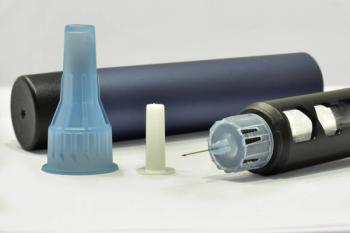
The 8 Biologics That Could Face Biosimilar Competition by 2030
Humira may face competition from multiple generics next year, but an octet of other biologics may also see competition this decade.
There are biosimilars on the market in the United States for nine different types and biosimilars have been approved by the FDA in two additional categories.
In July, the first ophthalmologic biosimilar, Byooviz (ranibizumab) began competing with the blockbuster originator Lucentis. The next category that is poised to see more biosimilars is immunology, where multiple biosimilars of Humira (adalimumab) are set to enter the U.S. market in 2023.
Humira competition is certain because FDA approvals have been issued and launch dates have been announced. Moreover, the makerters of the Humira biosimilar makers have signed agreements with AbbVie, Humira’s maker, that preclude the possibility of legal opposition.
Beyond 2023 and the Humira biosimilars are new categories of biosimilars whose launch timelines can be only be estimated based on pieces of information here and there. These launches are by no means certain and might drift well out into the future.
Cardinal Health in its 2022 biosimilars
- In the near term, Cardinal is predicting that a biosimilar for immunology drug Actemra (tocilizumab) will come on th emarket this year or next. Actemra, whic is used to treat rheumatoid arthritis and related conditions, had sales of $3.26 billion in 2021.
- A biosimilar to Stelara (ustekinumab), a treatment for plaque psoriasis and psoriatic arthritis, could make its way on to market by 2024. Stelara had $9.1 billion in sales last year..
- Also anticipated by 2024 is the launch of an Eylea (aflibercept) biosimilar. Eylea is used for the treatment of age-related macular degeneration, macular edema and diabetic retinopathy. The drug reaped $9.24 billion in sales in 2021.
- Simponi (golimumab), which is used to treat rheumatoid arthritis, psoriatic arthritis, ankylosing spondylitis and ulcerative colitis, is another candidate for biosimilar competitoin in 2024. Simponi brought in $2.28 billion in sales in 2021.
- Further out, Cardinal Health is predicting that biosimilars of immunosuppressive drug Soliris (eculizumab) and bone strengthener Prolia (denosumab) will emerge in 2025. Soliris and Prolia had 2021 sales of $1.87 billion and $3.25 billion, respectively.
- The next most likely biosimilar launch will not occur until 2029, when biosimilars for Enbrel (etanercept) that are already approved by FDA are likely to launch, according to Cardina's report. Enbrel is used to treat plaque psoriasis, rheumatoid arthritis, psoriatic arthritis and ankylosing spondylitis. Enbrel had sales of $4.47 billion in 2021. By the time 2029 rolls around, the drug (and its owner, Amgen) will have enjoyed roughly 30 years of market exclusivity.
Existing categories of biosimilars may also see new launches soon.
- Kashiv Biosciences and Amneal Pharmaceuticals have FDA approval for Releuko, a Neupogen (filgrastim) iosimilar approved earlier this year. The same companies have FDA approval for Flynetra, a biosimilar to Neulasta (pegfilgrastim). Neupogen and Neulasta boost the body’s white blood cell count.
- Amneal and mAxbience have FDA approval for Alymsys, a biosimilar to Avastin (bevacizumab), which is used in the treatment of a number of different types of cancer, including lung, colon, and kidney cancer.
- Eli Lilly has FDA approval for Rezvoglar, a biosimilar to Lantus (insulin glargine).
Biosimilars launched in the past three years have achieved an average market share of 74%, which is far better than the 3-year average of 38% measured in 2019, according to
When it comes to patient access to important biologic medicines, much depends on the successful and timely launch of the biosimilars anticipated for the remainder of this decade.
Newsletter
Pharmacy practice is always changing. Stay ahead of the curve with the Drug Topics newsletter and get the latest drug information, industry trends, and patient care tips.






















